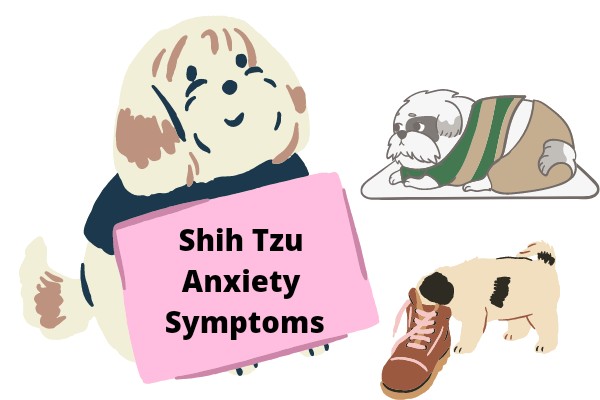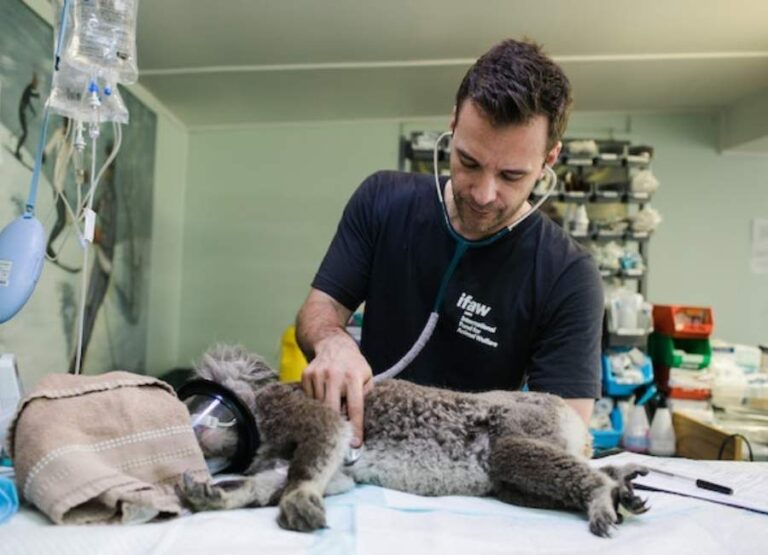10 Most Common Reasons Why Dogs Shake

As it turns out, there are actually a few different reasons why dogs shake!
Whether it’s to communicate with other pups, release excess energy or water, or simply just because it feels good, shaking is a completely normal and healthy behavior for our four-legged friends.
In this short and sweet blog post, we’ll dive a little deeper into why our pups shake and what it really means.
Reasons Why Dogs Shake
The following are some common reasons why dogs shake:
Cold
Dogs shake when they are cold because their body is trying to generate heat.
When the temperature drops below a certain point, the dog’s muscles start to contract involuntarily.
This causes the body to produce more heat by shaking, dogs shake when they are cold.
Dogs shake to generate heat, dogs also shake to get rid of excess water.
Nervousness
Nervousness in dogs is not always a bad thing. In fact, it’s often the reason dogs shake their tails!
Nervousness in dogs can be caused by a new environment, a loud noise or a person in the house, and even the weather outside.
For example, if your dog has never been in your new house before, and you’re moving in with him or her (or both).
Then this could cause some nervousness on their part—especially if they’ve lived with someone else up until now.
Dogs also tend to become nervous when there’s an unfamiliar person around because of what we humans do together: petting each other and talking about our days!
If your dog is used to having his own routine of sleeping time and eating times during each day.
Then suddenly losing it might make him feel anxious about where he fits into his life now that these things have changed around him too much at one time.
Stress
Stress can cause dogs to shake. This can be caused by a lot of things, including:
- The addition of a new dog in the house.
- A new baby in the house.
- Moving to a new home or apartment complex where there aren’t as many familiar faces around yet and you don’t know how everyone else will react when they see your pet for the first time! These are all stressful situations for both humans and pets alike!
- Constantly changing your dog’s daily routine.
- Constantly leaving your dog alone at home.
Wet
You may have noticed that your dog shakes after a bath or when they are wet.
This is because dogs shake to dry themselves, and it’s an instinctive action.
If you’ve ever owned a dog that didn’t like taking baths, then you know how hard it is for them to get rid of the water from their fur!
Dogs also shake after being in the rain or ocean—they want to dry off as soon as possible.
Excitement
Dogs shake when they are excited. The shaking is a sign of happiness, and your dog will likely continue to shake for several minutes after the excitement has passed.
It’s important that you understand this behavior before trying to stop it with treats or other training methods.
Old Age
If your dog is shaking, it may be due to old age.
This can be a normal part of aging for dogs and does not necessarily indicate anything serious.
However, if the shaking persists for more than a few days, you should take him to the vet for a checkup and make sure that he doesn’t have any pain in his joints or bones.
Learn more about dogs dying of old age.
Arthritis or Injury
Arthritis is a condition that causes pain and stiffness in your dog’s joints. It can develop as a result of aging, genetics, or injury.
If you notice your dog becoming increasingly uncomfortable when he walks, runs, or jumps around, make sure to schedule regular checkups with your vet.
If there is any sign of arthritis at all it will be treated with anti-inflammatory medications when you talk to your veterinarian.
Pain
Pain is a common symptom that can be caused by many diseases.
The most common causes of pain in dogs are arthritis and cancer, but it can also be the result of injury or other conditions.
For example, if your dog has been spayed or neutered and then develops an infection, he’ll likely experience some type of pain throughout the healing process.
Seizures or Tremors
Seizures or tremors can be caused by epilepsy, brain tumors, or other neurological disorders.
In some cases, it may be a sign of hypothyroidism (low thyroid function), Cushing’s disease (a condition that causes the adrenal glands to produce more cortisol than normal), or other medical conditions.
Always consult your veterinarian if you think your dog has a seizure or tremor.
Dog Shakes for Attention
It is not unusual for a dog to shake its head and tail in response to something that catches its attention.
A dog’s behavior can vary from one situation to another, but it is typically an attempt by the animal to communicate with humans.
This can include saying hello or goodbye, asking for attention, or even asking if someone wants a treat.
It’s important not to confuse this shaking behavior with illness or pain; it’s just a way of communicating with owners!
Read more: 10 Common Reasons Why Dogs Whine.
Common things to do if your dog is shaking
Here are some common things you can do if your dog is shaking:
- Assess the situation: Determine if your dog is shaking because they are cold, wet, or excited. If it is due to excitement, there is no cause for concern. However, if it is due to other reasons, then you may need to take action.
- Check their body language: Observe your dog’s body language to determine if they are in pain or discomfort. This can include whimpering or yelping, panting, and avoiding certain activities.
- Check for injuries: Look for any signs of injury, such as a cut, swelling, or bruising. If you find any, take your dog to the vet.
- Monitor their behavior: If you notice that your dog is acting lethargic or is not eating or drinking, take them to the vet.
- Keep them warm: If your dog is shaking due to being cold, provide them with a comfortable dog bed, blanket, or sweater.
- Stay calm: Dogs can sense when their owners are anxious, so try to remain calm if you notice your dog shaking. Speak to them in a reassuring voice.
- Visit the vet: Take your dog to the vet if their shaking persists or if you notice any additional symptoms.
- Consider environmental factors: If your dog is shaking due to noise or other environmental factors, consider removing them from the situation.
- Be proactive: Take proactive measures to keep your dog healthy, such as providing them with a healthy diet and regular exercise, as well as keeping up with their vet checkups and vaccinations.
Remember that every dog is different and what works for one may not work for another.
If you are unsure about what to do, consult with a veterinarian.
Read more: 22 Important Dog Care Tips You Should Know.
Dog shaking and vomiting
If your dog is shaking and vomiting, there may be a medical issue.
The most common cause of this is a food allergy, though there are other causes as well.
If your dog is shaking and vomiting, take him to the vet as soon as possible.
The vet may do a blood test to determine the cause of the shaking and vomiting and prescribe a treatment.
Dog shaking and panting
There are many causes for a dog shaking and panting. Some common causes are as follows:
- Fear or anxiety: When a dog feels anxious or afraid, it may react by shaking and panting to try and calm down.
- Excitement or stress: When a dog is excited or stressed, it may react by shaking and panting.
- Heat or exercise: When a dog is overheating or exercising strenuously, it may react by shaking and panting.
- Overdose of drugs or alcohol: If a dog has overdosed on drugs or alcohol, it may shake and pant due to the effects.
Frequently Asked Questions
Why do dogs shake their body?
Dogs shake their body as a natural way to get rid of water, dirt, or other unwanted things that may be on their fur. They may also shake when they are excited or happy.
Should I be worried if my dog shakes excessively?
Excessive shaking can be a sign of a health problem, so it’s important to monitor your dog and see if there are any other symptoms.
If you notice any changes in your dog’s behavior, it’s always best to consult with your veterinarian.
Why do dogs shake their head?
Dogs may shake their head to get rid of excess ear wax or any other debris that may be in their ear.
They may also shake their head if they have an ear infection or ear mites.
Can shaking be a sign of anxiety in dogs?
Yes, shaking or trembling can be a sign of anxiety in dogs.
If you notice your dog shaking during times of stress or when they are in unfamiliar surroundings, it may be a sign that they are feeling anxious.
What can I do to help my dog if they are shaking due to anxiety?
There are a few things you can do to help your dog if they are shaking due to anxiety.
One is to provide a safe and calming environment for them. You can also try giving them a comforting hug or playing soothing music to help calm them down.
Do all dogs shake the same way?
Each dog has their unique way of shaking, depending on their size and breed.
Some dogs may shake more vigorously than others, while some may only shake a little.
It’s important to observe your dog’s behavior and get to know their habits so you can better understand them.
What does a dog shaking its back legs mean?
There are many possible meanings for a dog shaking its back legs, but the most common is that the dog is happy.
Other possible meanings include that the dog is excited, that it wants to play, or that it is trying to tell you something.
Conclusion
We hope this guide has helped you understand the reasons why dogs shake.
If your dog is exhibiting any of these behaviors, please visit your veterinarian to rule out any serious health issues that could be causing it.
The most important thing is to keep an eye on how your pet is reacting to things so that you can react accordingly when necessary and keep them safe from harm!






![Hairballs in Dogs [Causes, Signs & Remedies] Hairballs in Dogs](https://petcreeks.com/wp-content/uploads/2023/12/pexels-anna-bondarenko-7391070.jpg)